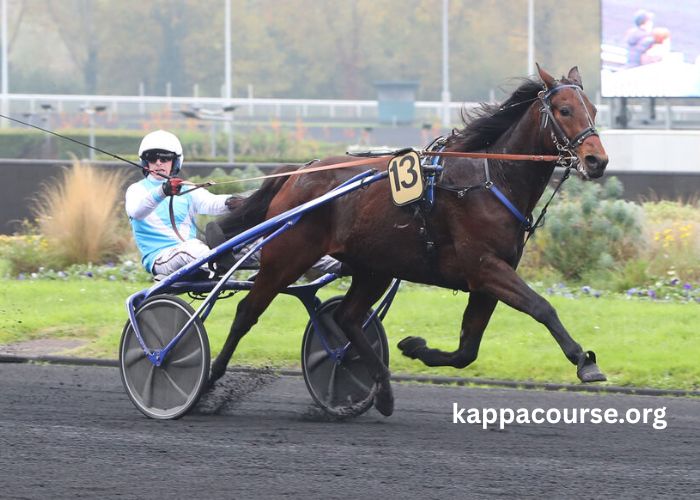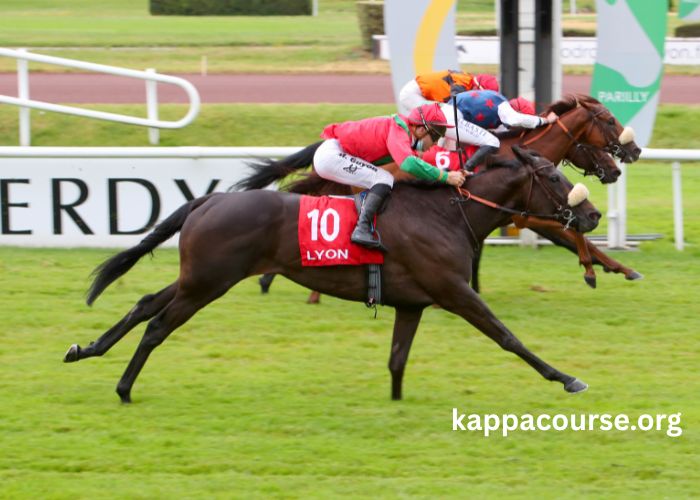Elimination Des Chevaux plays a crucial role in the world of horse racing. This process helps determine which horses will advance to the next round in various races, especially in events with multiple stages or eliminatory rounds. It is an essential part of competitive racing, ensuring that only the best horses progress to the final rounds, where the highest stakes are at play. By understanding Elimination Des Chevaux, both fans and bettors can gain deeper insights into how races are structured and how to strategize for a successful outcome.
The concept of Elimination Des Chevaux is not new in the racing world. It is an integral part of many horse racing formats, particularly in long-distance races or races with numerous participants. This process is designed to level the playing field by eliminating horses that may not be able to compete at the highest level. Understanding how this elimination works can provide bettors with the knowledge they need to make informed decisions when placing their wagers.
What Is Elimination Des Chevaux?
Elimination Des Chevaux is a term used to describe the elimination process in horse racing. In races that involve multiple rounds, elimination races are used to narrow down the field of participants. The horses that perform poorly in these races are eliminated, while the top-performing horses progress to the next stage or the final race.
This system is typically used in races that feature a large number of horses. It ensures that the final race is competitive, with only the best horses making it through the earlier rounds. The process is vital for organizers and bettors alike, as it adds a level of unpredictability and excitement to the event. For bettors, Elimination Des Chevaux provides an opportunity to assess the performance of horses in earlier rounds, offering valuable insights into which horses are likely to succeed in the final race.
In many cases, the elimination rounds are structured in such a way that horses are grouped based on their prior performances, allowing for a fair and competitive race. This structure helps ensure that the horses with the best form are more likely to advance, while those with less favorable odds may be eliminated early on. By understanding this elimination process, fans and bettors can gain a strategic advantage when it comes to predicting the outcome of races.
How Does Elimination Des Chevaux Impact Horse Racing?
The impact of Elimination Des Chevaux on horse racing is significant. It is a vital part of how many prestigious races are organized, ensuring that the final event is competitive and exciting. The process not only determines the horses that will make it to the final race but also adds a layer of strategy for trainers, jockeys, and bettors.
For the horses, Elimination Des Chevaux represents a critical opportunity to prove themselves. It is not uncommon for horses to perform differently in elimination rounds compared to the final race, as the pressure increases. The process tests a horse’s stamina, speed, and ability to handle the stress of competition over multiple rounds. This makes Elimination Des Chevaux an essential component for both the horses and their trainers, as it gives them a chance to adjust and improve before the final race.
For bettors, Elimination Des Chevaux adds a level of excitement and unpredictability. By observing the elimination races, bettors can gauge the form and potential of the horses they are considering for their wagers. It also offers an opportunity to analyze how horses are performing under pressure, which can influence betting decisions. Understanding the structure of Elimination Des Chevaux can give bettors an edge, allowing them to predict which horses are likely to advance and perform well in the final race.
How Do Trainers Prepare for Elimination Des Chevaux?
Trainers play a pivotal role in preparing their horses for Elimination Des Chevaux. The goal is to ensure that their horses are in peak condition, both physically and mentally, to perform well in the elimination rounds. The strategy may vary depending on the race format and the level of competition, but the overall aim is always to get the horse to the final stages of the race.
One of the primary considerations for trainers is the fitness of the horse. Before the elimination races, trainers will typically focus on building the horse’s stamina, strength, and speed. This training process may involve a combination of endurance exercises, sprint training, and recovery periods. The goal is to ensure that the horse can perform at its best during the elimination rounds, increasing its chances of advancing to the final race.
Another important aspect of training for Elimination Des Chevaux is mental preparation. Horses are highly sensitive animals, and their mental state can greatly influence their performance on the track. Trainers will often work with the horse to ensure it remains focused and calm during the elimination rounds. This may involve familiarizing the horse with the race environment and gradually exposing it to the pressures of competition.
The role of the jockey is also crucial during Elimination Des Chevaux. The jockey must be skilled at navigating the race, positioning the horse effectively, and making tactical decisions based on the performance of the other horses. A strong partnership between the trainer, the jockey, and the horse is essential to success in elimination races.
What Are the Different Types of Elimination Races?
There are several types of Elimination Des Chevaux, each serving a specific purpose in the overall structure of a horse race. These types vary depending on the number of horses, the format of the race, and the level of competition. Below are some common types of elimination races:
Qualifying Races
Qualifying races are used to determine which horses will enter the main event. These races are often used in large-scale events where a large number of horses compete for a spot in the final race. The horses that perform well in these qualifying races are eligible to compete in the next round, while those that perform poorly may be eliminated.
Round-Robin Elimination
In a round-robin elimination format, horses are grouped into multiple rounds, with each group racing against each other. The top horses from each group move on to the next stage of the competition. This format ensures that each horse has a fair chance to compete against others of similar ability, and it helps eliminate weaker horses from the race.
Time Trials
In some cases, Elimination Des Chevaux may take the form of time trials, where horses are timed over a set distance. The fastest horses in these trials advance to the next round. Time trials are often used in races that require a high level of speed and precision.
Each of these elimination formats has its own unique set of rules and strategies, and trainers and bettors alike must adjust their approach based on the type of race. Elimination Des Chevaux provides a way to narrow down the field and ensure that only the most competitive horses make it to the final round.
How Can Bettors Use Elimination Des Chevaux to Their Advantage?
Bettors can use Elimination Des Chevaux to their advantage by closely analyzing the performance of horses in the elimination races. Since these races determine which horses will make it to the final, it’s important to assess how well each horse is performing in the earlier rounds. By tracking the horses’ form, bettors can gain valuable insights into which horses are most likely to succeed in the final race.
One strategy is to focus on horses that perform consistently well in elimination races. Horses that show strong form in the early rounds may have a higher chance of continuing that success in the final race. Bettors should also consider the performance of jockeys, as experienced jockeys often have an advantage in handling the pressures of elimination rounds.
Additionally, Elimination Des Chevaux provides an opportunity to analyze the condition of the horses. Horses that are eliminated in the earlier rounds may be showing signs of fatigue, injury, or poor form, which can influence betting decisions for future races. By paying attention to these details, bettors can make more informed choices when placing their wagers.
Conclusion
In conclusion, Elimination Des Chevaux is a crucial element of horse racing that adds excitement, strategy, and unpredictability to the sport. It provides bettors with valuable insights into the performance of horses and helps ensure that only the best horses reach the final race.
Understanding the process of Elimination Des Chevaux is essential for anyone interested in the world of horse racing, whether as a fan, bettor, or participant. By analyzing the elimination races and using them as a tool for prediction, bettors can increase their chances of success and enjoy a deeper appreciation of the sport.





